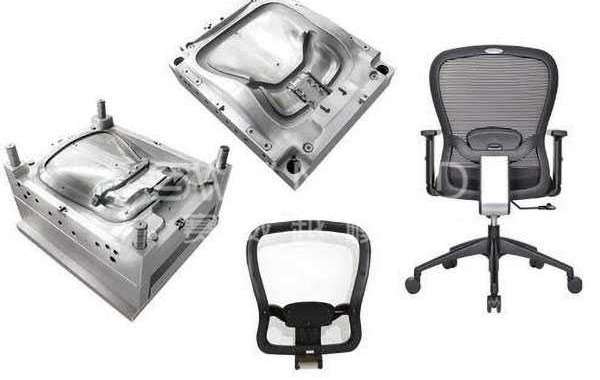When making Plastic Chair Injection Mould, In order to avoid unnecessary waste of time and troubles during mass production, it is necessary to pay patience to adjust and control various processing conditions, and find the best temperature and pressure conditions, and formulate standard trial procedures, which can be used for establishment Daily working methods.
One: Check whether the plastic in the barrel is correct, and whether it is baked according to the regulations.
Two: The material pipe must be cleaned thoroughly to prevent inferior plastic or miscellaneous materials from being injected into the mold, because the inferior plastic and miscellaneous materials may jam the mold. Test whether the temperature of the barrel and the mold are suitable for the processed raw materials.
Three: Adjust the pressure and injection volume to produce a finished product with a satisfactory appearance, but do not run off the burrs, especially when some mold cavity finished products are not completely solidified. Think about it before adjusting various control conditions, because mold filling A slight change in the rate may cause a very large change in the mold filling.
Four: Wait patiently until the conditions of the machine and mold stabilize, even for medium-sized machines, it may take more than 30 minutes. You can use this time to see possible problems with the finished product.
Five: The time for the screw to advance cannot be shorter than the time for the plastic at the gate to solidify, otherwise the weight of the finished product will be reduced and the performance of the finished product will be impaired. And when the mold is heated, the screw advance time needs to be extended to compact the finished product.
Six: Reasonably adjust to reduce the total processing cycle.
Seven: Run the newly adjusted conditions for at least 30 minutes until they are stable, and then at least continuously produce a dozen full mold samples, mark the date and quantity on the container, and place them according to the mold cavity to test whether it is stable and exported Reasonable control tolerance.
Eight: Measure and record the important dimensions of continuous samples, and measure them when the samples are cooled to room temperature.
Nine: Compare the measured size of each mold sample, you should pay attention to:(1) Whether the size is stable. (2) Whether there is a trend of increase or decrease in certain dimensions, which indicates that the machining conditions are still changing, such as poor temperature control or oil pressure control. (3) Whether the size change is within the tolerance range.
Ten: If the size of the finished product does not change and the processing conditions are normal, it is necessary to observe whether the quality of the finished product of each cavity is acceptable and its size can be within the allowable tolerance. Note down the number of cavities that are continuous or larger or smaller than the average to check whether the size of the mold is correct.
Finally, you must remember to properly keep all the records of the sample inspection during the mold trial process, including the various pressures during the processing cycle, the temperature of the melt and the mold, the temperature of the barrel, the injection action time, the screw feeding period, etc., in short, you should keep all In the future, it will help to successfully establish the data of the same processing conditions in order to obtain products that meet the quality standards.







